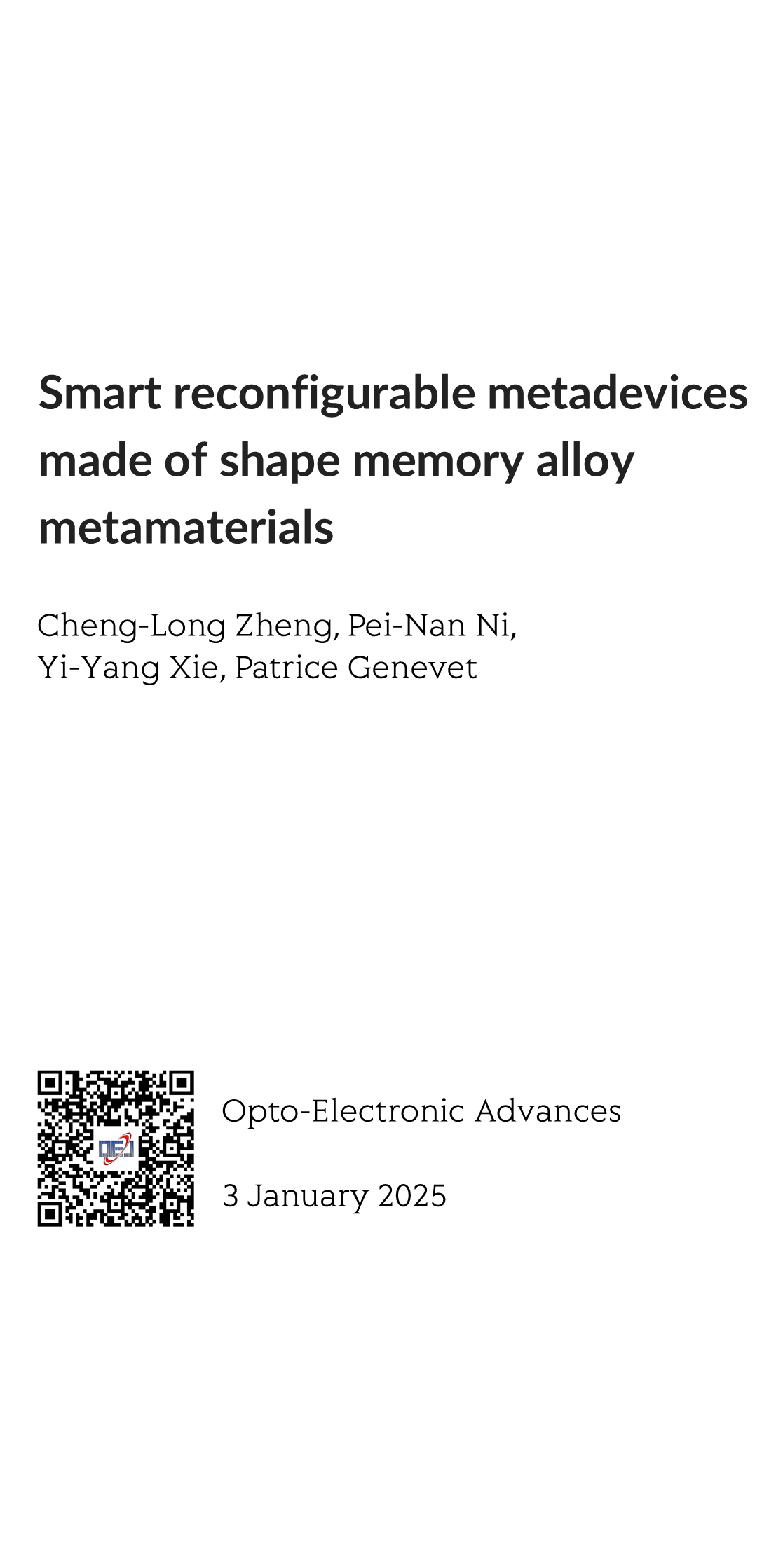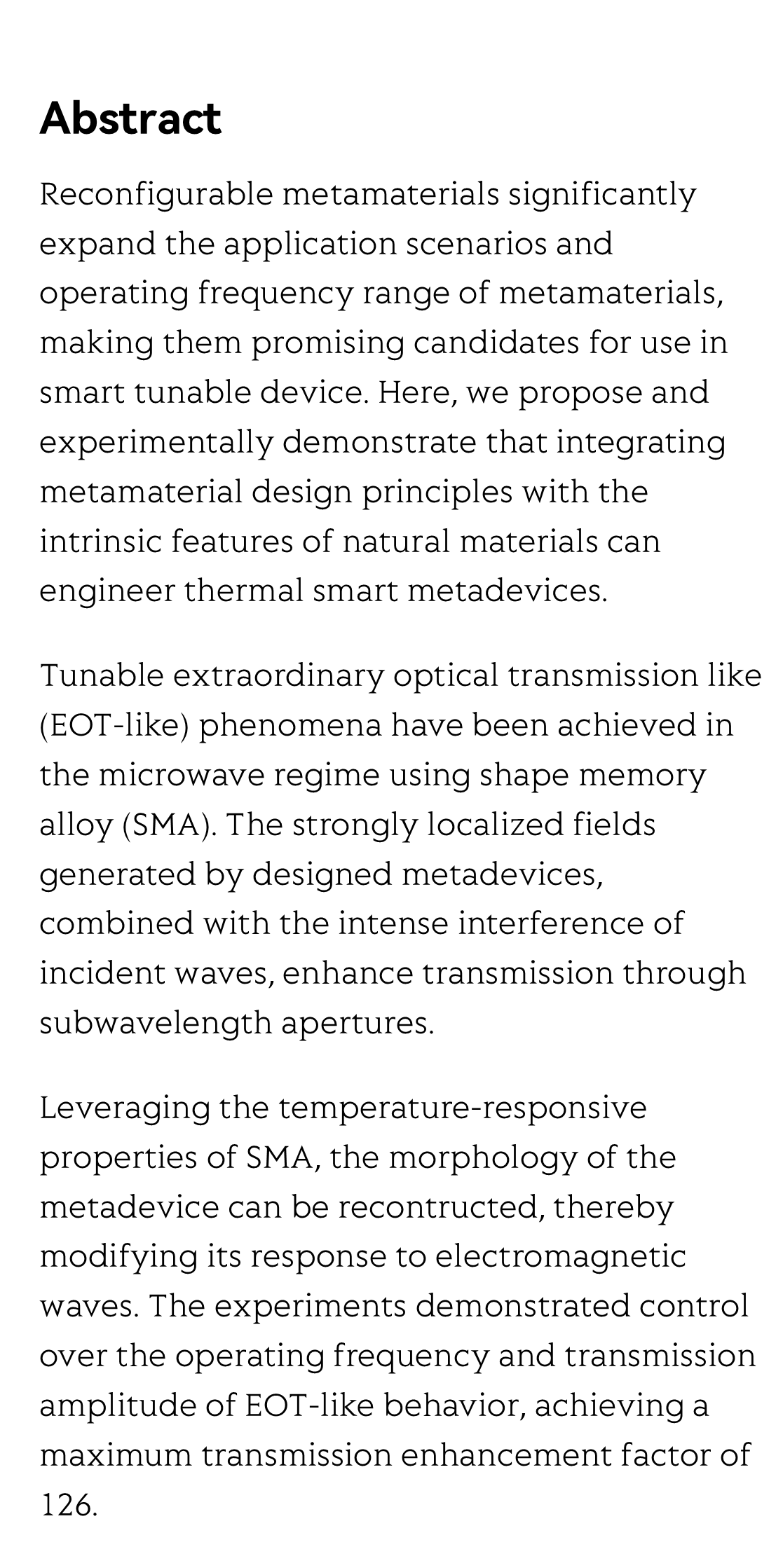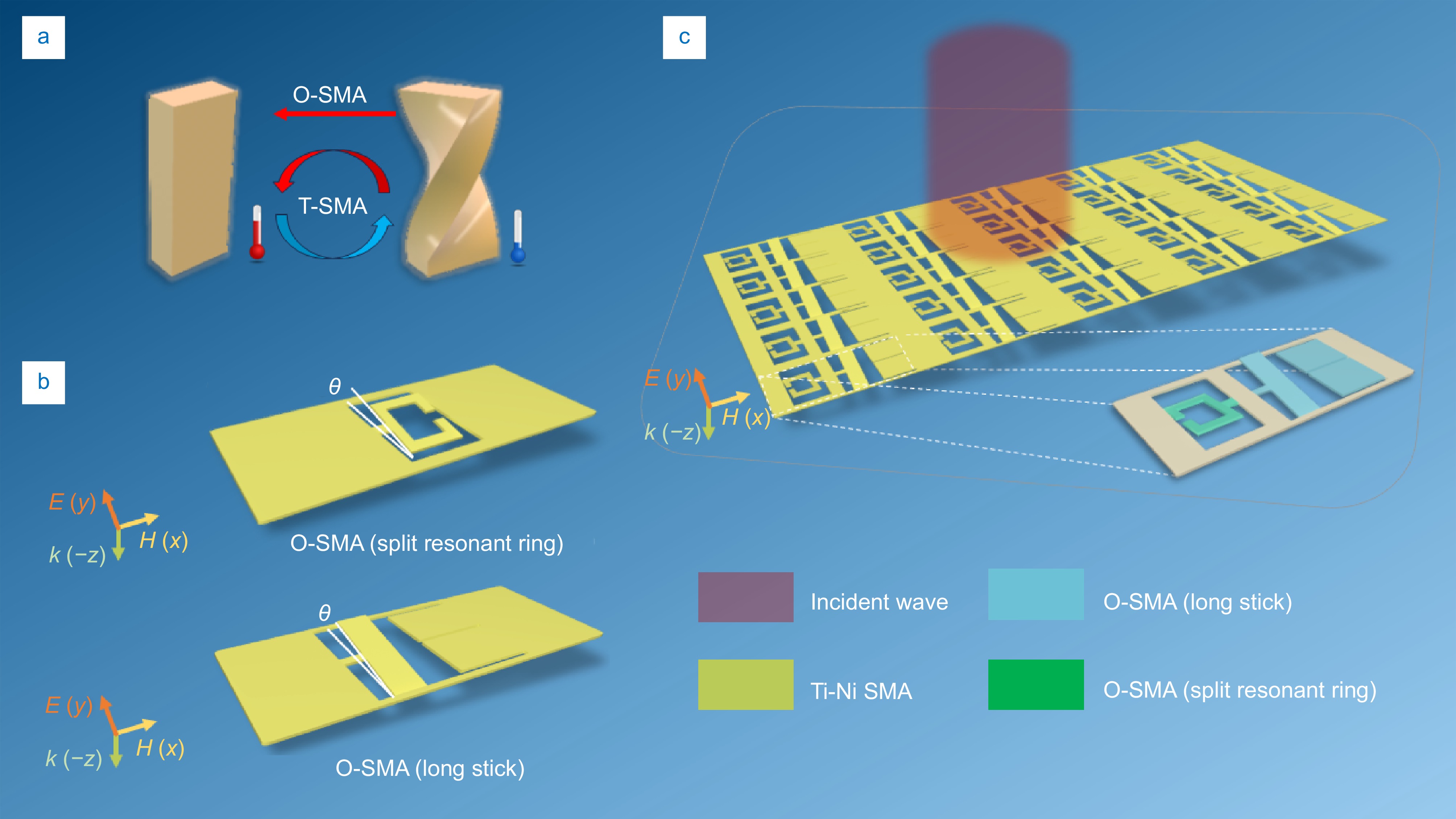(Peer-Reviewed) Smart reconfigurable metadevices made of shape memory alloy metamaterials
Shiqiang Zhao 赵世强 ¹ ², Yuancheng Fan 樊元成 ¹, Ruisheng Yang 杨蕤生 ¹, Zhehao Ye 叶哲浩 ¹, Fuli Zhang 张富利 ¹, Chen Wang 王陈 ², Weijia Luo 罗伟嘉 ², Yongzheng Wen 文永正 ², Ji Zhou 周济 ²
¹ MOE Key Laboratory of Material Physics and Chemistry under Extraordinary Conditions, School of Physical Science and Technology, Northwestern Polytechnical University, Xi'an, 710129 China
中国 西安 西北工业大学物理科学与技术学院 超常条件材料物理与化学教育部重点实验室
² State Key Lab of New Ceramics and Fine Processing, Department of Materials Science and Engineering, Tsinghua University, Beijing, 100084 China
中国 北京 清华大学材料学院 新型陶瓷与精细工艺国家重点实验室
Opto-Electronic Advances, 2025-01-03
Abstract
Reconfigurable metamaterials significantly expand the application scenarios and operating frequency range of metamaterials, making them promising candidates for use in smart tunable device. Here, we propose and experimentally demonstrate that integrating metamaterial design principles with the intrinsic features of natural materials can engineer thermal smart metadevices.
Tunable extraordinary optical transmission like (EOT-like) phenomena have been achieved in the microwave regime using shape memory alloy (SMA). The strongly localized fields generated by designed metadevices, combined with the intense interference of incident waves, enhance transmission through subwavelength apertures.
Leveraging the temperature-responsive properties of SMA, the morphology of the metadevice can be recontructed, thereby modifying its response to electromagnetic waves. The experiments demonstrated control over the operating frequency and transmission amplitude of EOT-like behavior, achieving a maximum transmission enhancement factor of 126.
Furthermore, the metadevices with modular design enable the realization of multiple functions with independent control have been demonstrated. The proposed SMA-based metamaterials offer advantages in terms of miniaturization, easy processing, and high design flexibility. They may have potential applications in microwave devices requiring temperature control, such as sensing and monitoring.
A review on optical torques: from engineered light fields to objects
Tao He, Jingyao Zhang, Din Ping Tsai, Junxiao Zhou, Haiyang Huang, Weicheng Yi, Zeyong Wei Yan Zu, Qinghua Song, Zhanshan Wang, Cheng-Wei Qiu, Yuzhi Shi, Xinbin Cheng
Opto-Electronic Science
2025-11-25







